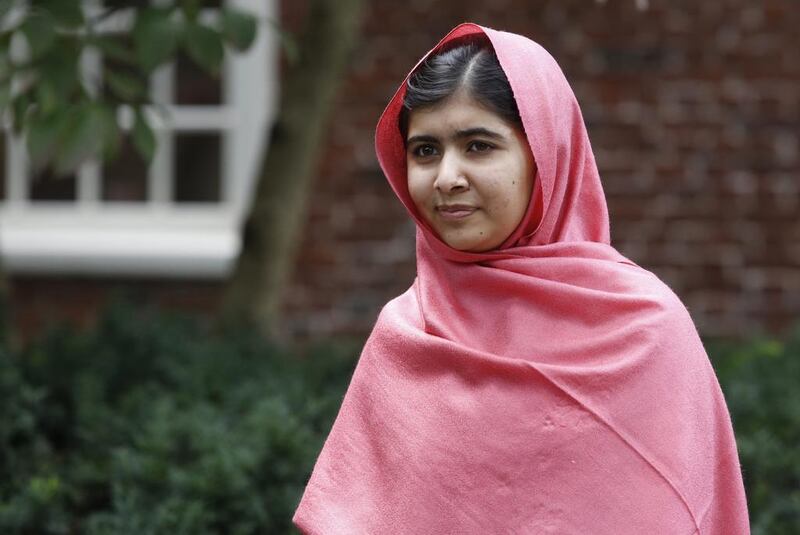The world was united in celebration, however fleetingly, by the award of a shared Nobel Peace Prize to Malala Yousafzai, the Pakistani teenage girl who lived in a brutal Taliban mini-state but never accepted its denial that she deserved an education. She documented it for the BBC at a time when the picturesque Swat valley, her home, was ruled by the most bloodthirsty of all Pakistani militants. And after the Taliban had been evicted from there, she was a loud but lonesome voice in Pakistan demanding equal education rights for girls at a time when the rest of the country was paralysed by terrorism.
Malala’s was a very public act of civil disobedience against the Taliban’s toxic narrative of repression, and that made her an unprecedented political threat to it. For that, she was targeted for elimination, point-blank, and wouldn’t have survived were it not for a multinational effort involving the UAE to airlift her to the UK for specialist medical care. She did, and with passion and dignity, and eloquence beyond her years, Malala has since become the world’s beacon of moral inspiration. As such, the Nobel Prize recognises not just her heroic idealism, but her absolute belief that one person on a mission for the common good could change the world.
The admiration of Malala, however, overlooks what she represented as a Pakistani: a nation that has undergone 13 years of war with the world’s largest conglomerate of Taliban and Al Qaeda-branded militant factions. Setting aside the politics of government, the country has survived and won a war against a force that was far bigger than ISIL, commanded by evil masterminds such as Osama bin Laden, and pursued by career jihadists deeply entrenched within mainstream society.
The cost has been incalculable. Because of murky politics, the world is no longer interested in the 1 million-plus Pakistani civilians displaced by the conflict to this day. Unfortunately, because of the same murky politics, most Pakistanis are as ignorant of the conflict as the wider world. The bulk of the population lives far enough away from the war zones of the north-west to have only occasionally felt directly threatened, and that, too, is a fast-fading memory. As such, the displaced civilians have all but been purged from the national consciousness.
That’s one example. Another is that Pakistan’s army has lost 2,500-3,000 commissioned officers in the war, approximately one in 10, most of them young officers up to the rank of major. That’s a catastrophe for any military, particularly one made up exclusively by professional soldiers, and a clear demonstration that they were fighting an army of skilled, war-hardened and motivated militants.
But that’s not reported, much less debated, because the state failed to provide a clear counter-narrative to the militants.
Instead, false narratives dominate the country’s view of itself. Last year, the majority of voters supported a peace deal with the Taliban, even though that had been tried in Swat previously, with horrific consequences for Malala and her co-residents, and had only encouraged the terrorists to press onward towards Islamabad, the capital. That sentiment changed only when the state launched the battle for North Waziristan and with it changed the terminology: the media never names the Taliban, but refers to “unidentified terrorists” (if they’re domestic) or “foreign terrorists”. Now, it’s as if the insurgency has disappeared into thin air.
A false national narrative is a dangerous political phenomenon: it gives rise to a confused, ignorant public discourse and, in the case of Pakistan’s conflict with the militants, has often been characterised by paranoia. Sadly, Malala is sometimes maligned because of mistrust of anything not explicitly lionised in the state’s narrative. Indeed, that only began to change recently, when the military announced it had caught her would-be assassins and, in the process, the state took public ownership of Malala for the first time. The general public is still evolving its response to her receipt of the shared Nobel. It started as sceptical, but is gradually warming and that after seeing an example of the impact Malala as a global moral icon.
Malala and her fellow recipient, Indian children’s rights activist Kailash Satyarthi, invited the prime ministers of both countries to attend the Nobel award ceremony. Satyarthi said he would work with her for peace. And, suddenly, the political narrative shifted and there was light at the end of the tunnel.
Tom Hussain is a freelance journalist and political analyst based in Islamabad





